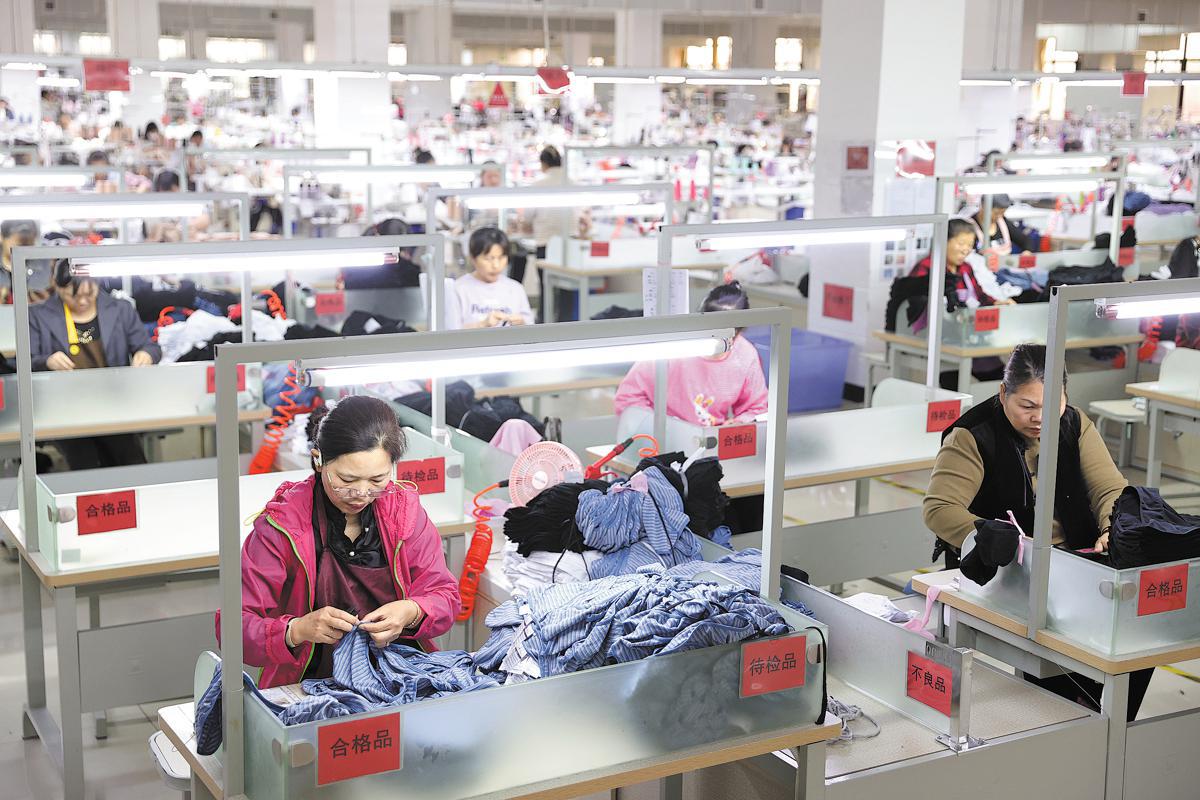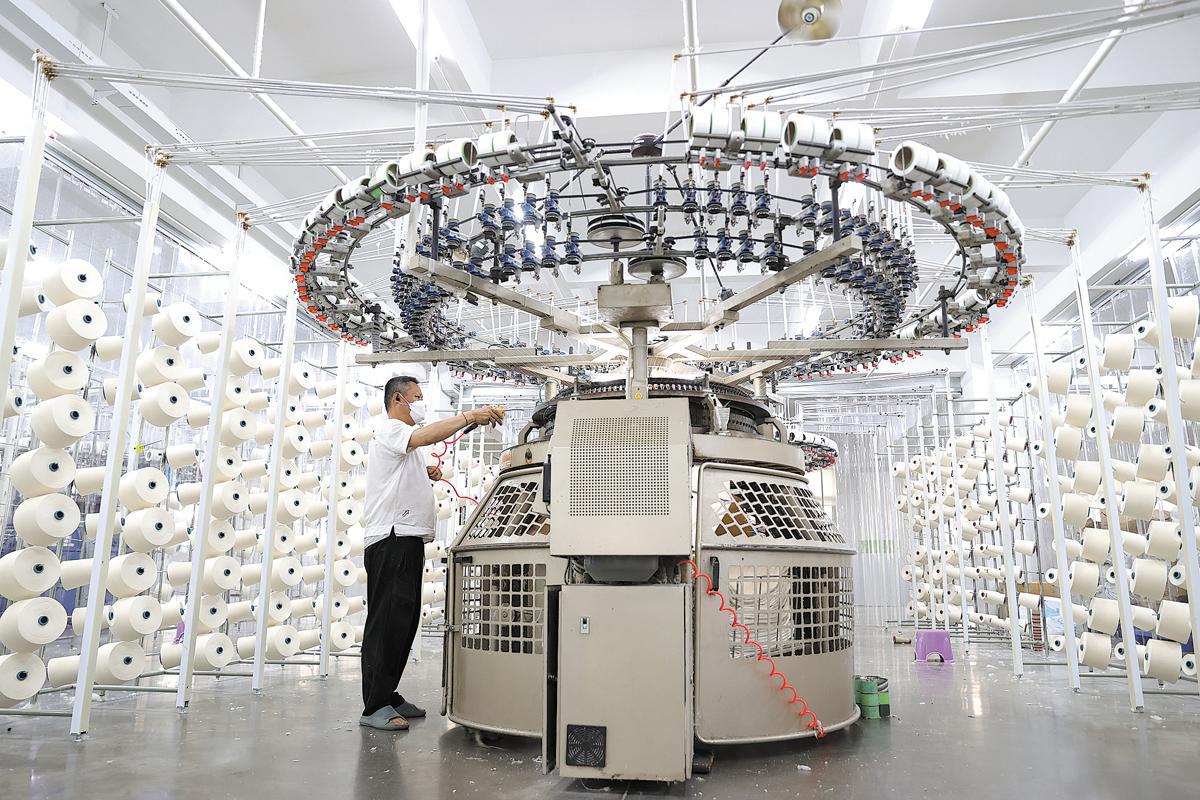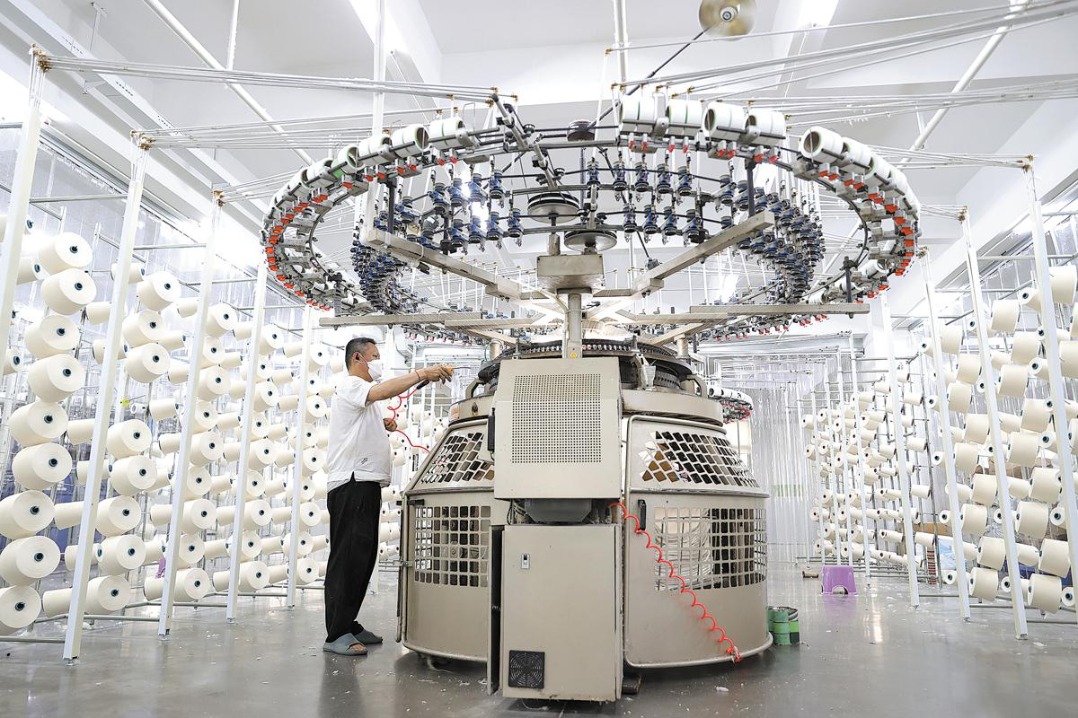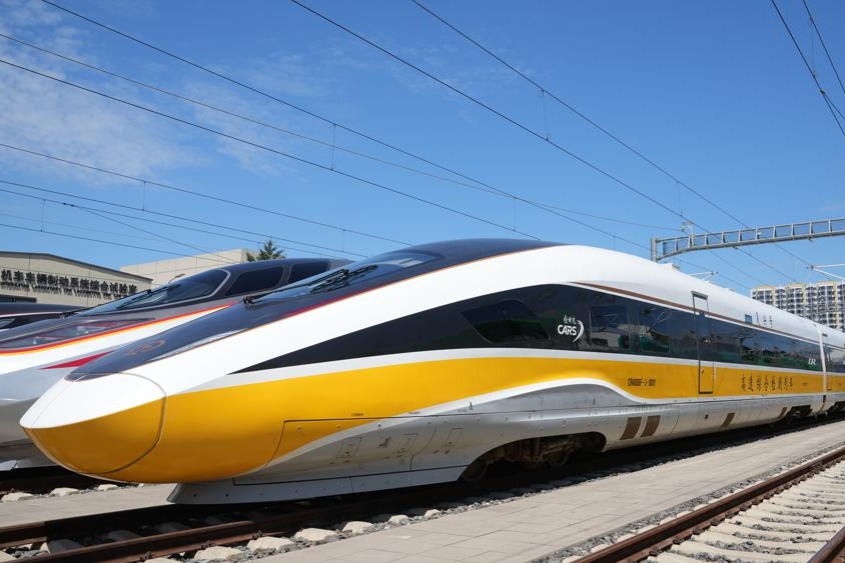Little-known 'Underwear Hub' looks to expand global imprint
Backed by complete supply chain, Shenhu town navigates trade uncertainties


Shenhu, a little-known small town in Jinjiang, Fujian province, has struck gold by producing more than 20 percent of the world's underwear.
It has around 500 underwear companies and supporting factories that generate an annual output value exceeding 50 billion yuan ($6.97 billion). More than 10 million pieces are shipped to global markets daily, data from local authorities showed.
"We used to be a fishing town, relying on the sea for livelihood. After the reform and opening-up, overseas Chinese relatives brought back foreign lingerie, which opened the eyes of Shenhu residents to new business opportunities. This led to a shift from a single maritime-based economy to a more diversified production and lifestyle," said Yang Huisu, executive vice-president of Jinjiang Shenhu Chamber of Commerce.
Opened in 1989, Jinjiang Jiali Costume and Weaving Co produces underwear, socks and yoga wear such as leggings and sports bras that cover adults and children. Its annual revenue is about $40 million.
Cai Xinling, general manager of the company, said they handle the entire manufacturing process in-house, from fabric weaving, dyeing, and printing to producing elastic bands, main fabrics and auxiliary materials.
About 30 percent of its orders come from the United States. Recent ones involved Germany, the United Kingdom and Canada as well.
Male underwear sells at $0.8 to $1 each for US customers, while medium and high-end ones cost about $1.8 to $2.5, according to Cai.
"This year, when US tariffs hit, both Shenhu township and Jinjiang city governments provided crucial support. They organized domestic giants like Anta and Xtep to visit export-oriented manufacturers like us to create opportunities in business cooperation in doing domestic trade," Cai said. "The government also mediated with banks to secure favorable loan terms for affected businesses."
The company now focuses on developing functional fabrics, such as antibacterial and temperature-regulating ones, and innovating in products based on more tailored demands.
"For example, the underwear we wear at the office and while exercising is different in fabric and function. For sports, we need moisture-wicking and antibacterial properties, whereas for office wear, cotton remains the go-to choice. It's all about superior comfort," she said.
Although it has shifted some of its business to the domestic market due to global uncertainties, Cai believes underwear remains an essential consumption.
"With 90 percent of Shenhu's capacity traditionally export-oriented, we're now bridging to domestic markets through government-led exhibitions and partnerships with local brands."
The transformation reflects Shenhu's adaptive spirit: maintaining its supply chain superpower while strategically rebalancing markets, one stitch at a time.
In 2004, Shenhu town was awarded the title of an "Underwear Hub of China". The complete industrial chain enables Shenhu's underwear manufacturers to source all materials for a single garment within just 30 minutes.
"This fully integrated supply chain has not only boosted production efficiency but also ensured more stable output for the local industry," Yang from the chamber said.

Flagship products of Fujian Jinjiang Shenhu Shengda Clothing Factory in the town include knitted underwear for men and women, supplemented by knitted vests, T-Shirts and thermal wear.
Nian Xiaoxin, general manager of the factory, forecasts a more than 50 percent growth in production and sales this year. "A notable market shift has seen major retailers and bulk purchasers increasingly bypass Hong Kong and Shanghai trading intermediaries to engage directly with manufacturers like us," he said.
The factory also received orders from new customers such as the UK, Italy, Japan and South Korea.
"Shenhu's most significant industrial advantage lies in its complete supply chain ecosystem. Virtually all upstream and downstream raw and auxiliary materials can be procured within the town on the same day. Moreover, our relatively large purchase volumes and direct supplier relationships give us considerable pricing advantages," he said.
Nian remains optimistic about the future development prospects of Shenhu's lingerie industry.
In the next five years, the town aims to further expand into European, South American, and Southeast Asian markets. It will collaborate with cross-border e-commerce platforms like Shein and TikTok to explore new production models. The industry also plans to shift its focus from exports to domestic sales to mitigate risks from international trade fluctuations, according to Yang.
Contact the writers at chenmeiling@chinadaily.com.cn























